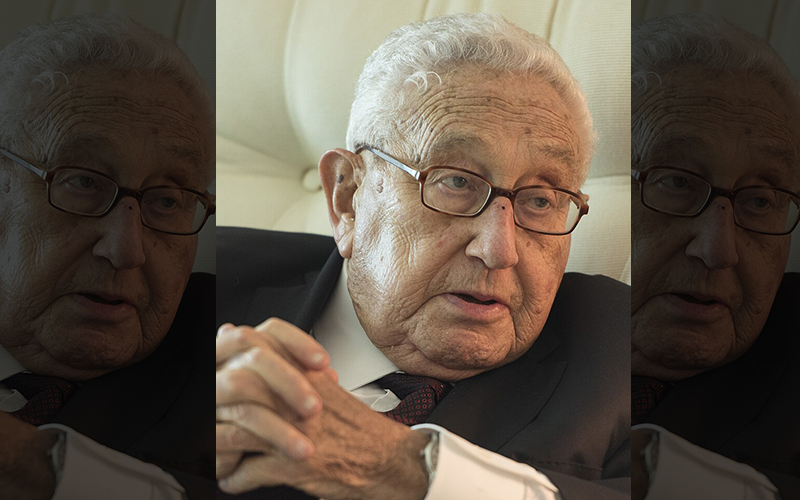
Former US Secretary of State Henry Kissinger, who worker under President Nixon and Ford, dies at 100
Washington: Former US Secretary of State Henry Kissinger, who is credited with shaping American foreign policy in the 1970s by devising plans to conclude the Vietnam War and restrain communist nations, has died at the age of 100.
The Harvard University professor and diplomat breathed his last on Wednesday at his residence in Connecticut, his associates said in a statement.
Kissinger, who was a child refugee, is known for his significant contributions to US national security and foreign policy. He garnered acclaim for his contributions in facilitating the opening of China to the West, fostering détente with the Soviet Union, and instigating arms-control agreements during the tenures of Republican Presidents Richard Nixon and Gerald Ford.
He faced widespread criticism for endorsing extensive bombing campaigns in Vietnam and Cambodia, supporting the authoritarian rule of Chile's Augusto Pinochet, and overlooking genocide in East Timor and Bangladesh.
As a Jew, who fled Nazi persecution in Germany at the age of 15 in 1938, Kissinger developed a conservative ideology that markedly influenced his policymaking while in government.
Detractors defined his steadfast commitment to curbing Soviet hegemony at any cost as a moral failure in the pursuit of what he deemed a greater purpose.
Kissinger employed this rationale to vindicate Cold War policy decisions in distant conflict zones, including Vietnam, Chile, and the Middle East.
“If I had to choose between justice and disorder, on the one hand, and injustice and order, on the other, I would always choose the latter,” Kissinger said more than once, borrowing from writer Johann Wolfgang von Goethe.
Kissinger, a figure transcending diplomacy, gained quasi-cult status in the 1970s. As Nixon's national security adviser, he implemented secretive policy-making, bypassing official channels. Kissinger and Nixon wielded significant influence over foreign policy from the White House, employing back channels and resorting to wiretapping, which eventually contributed to Nixon's resignation amid the Watergate scandal in 1974.
Support Our Journalism
We cannot do without you.. your contribution supports unbiased journalism
IBNS is not driven by any ism- not wokeism, not racism, not skewed secularism, not hyper right-wing or left liberal ideals, nor by any hardline religious beliefs or hyper nationalism. We want to serve you good old objective news, as they are. We do not judge or preach. We let people decide for themselves. We only try to present factual and well-sourced news.







